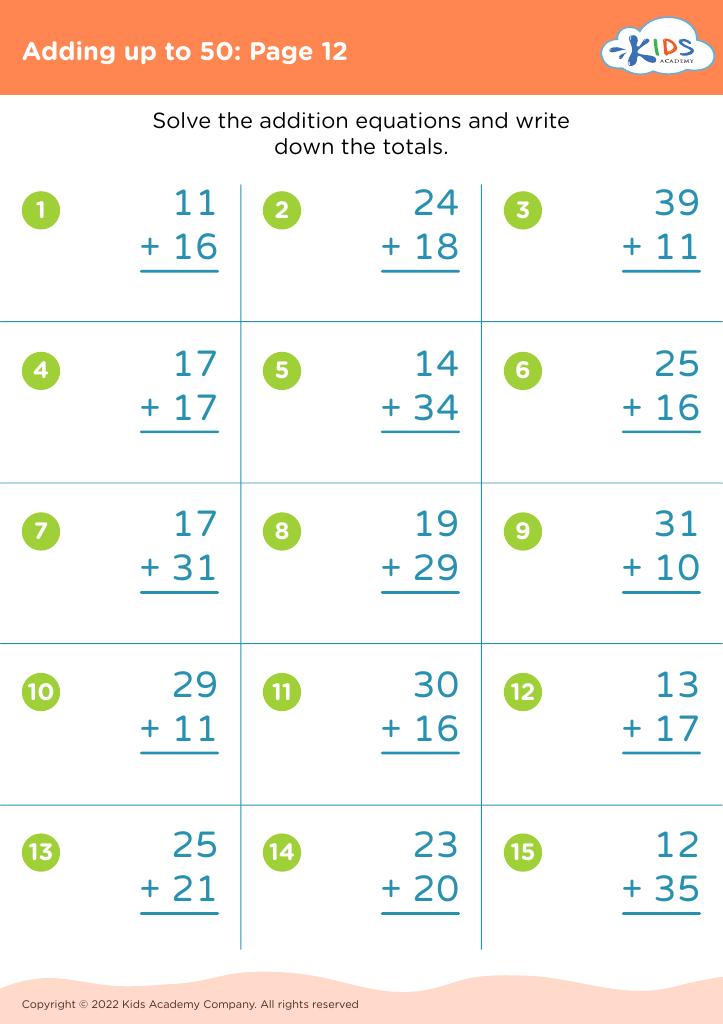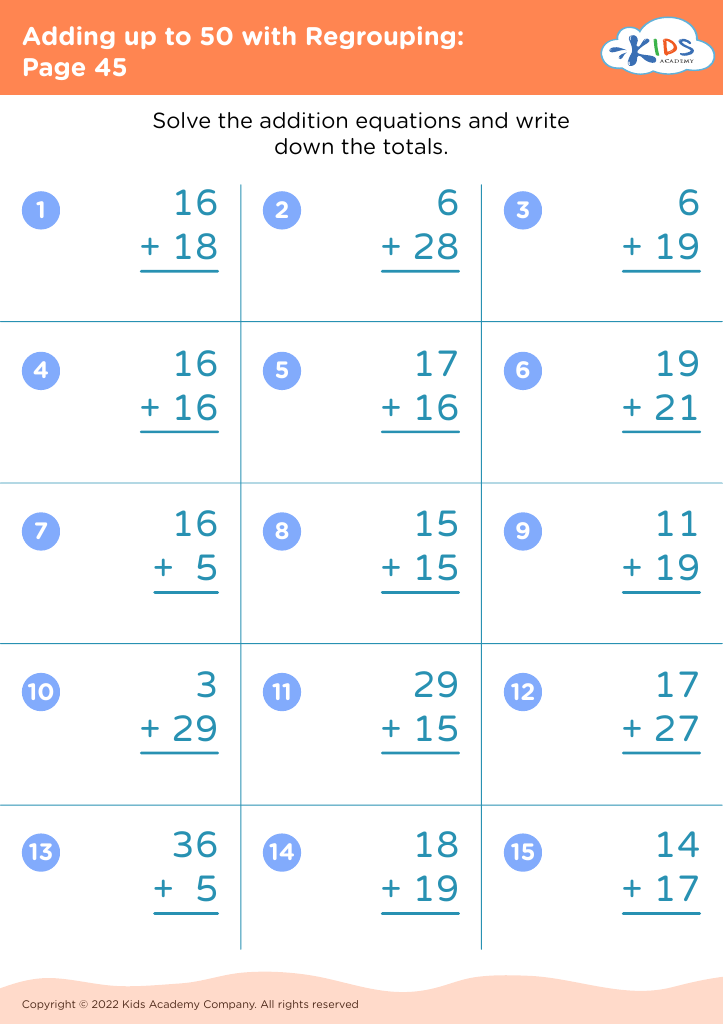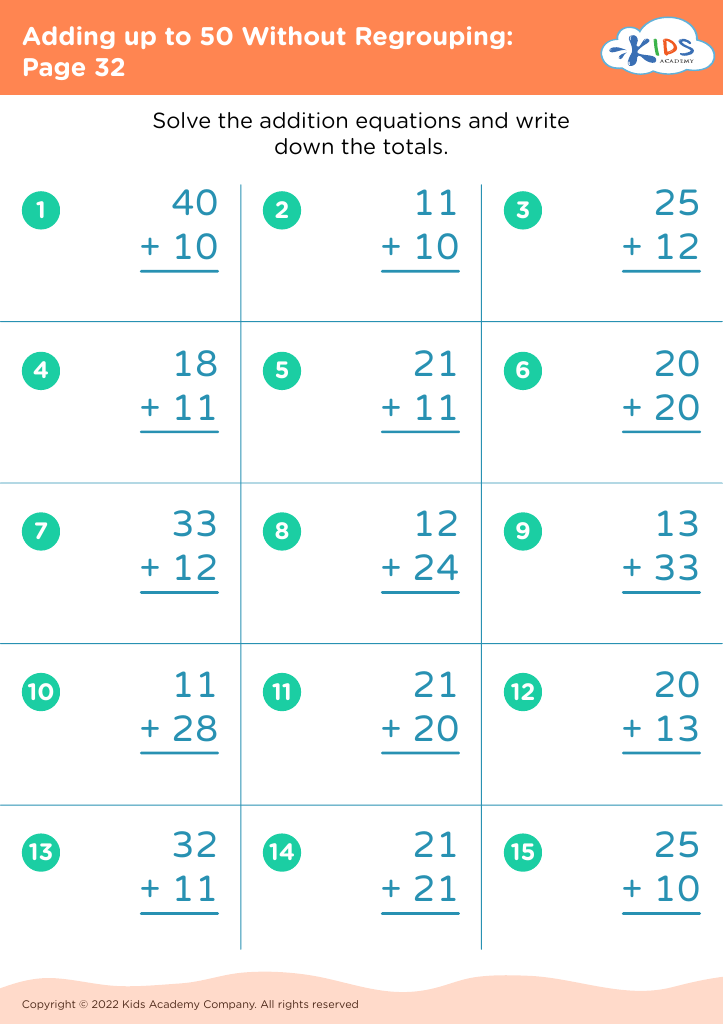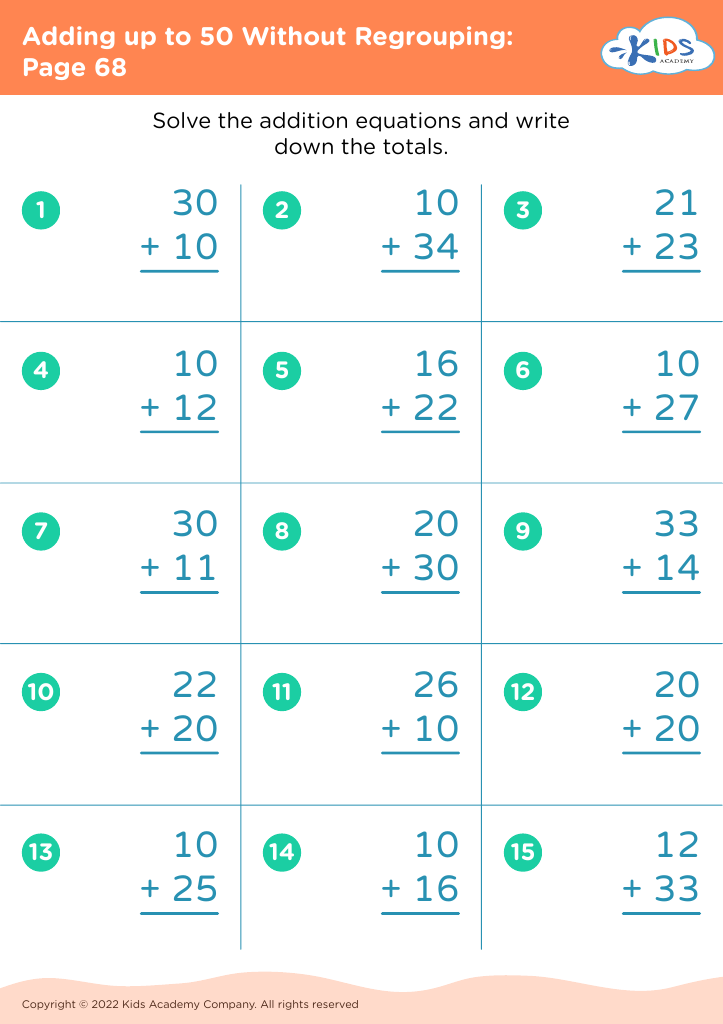Basic Addition Skills Adding up to 50 Worksheets for Ages 6-7
5 filtered results
-
From - To
Strengthen your child’s proficiency in basic addition skills with our expertly designed worksheets focused on adding up to 50, specifically created for ages 6-7. These engaging exercises not only provide fundamental practice but also boost confidence in solving addition problems. Each worksheet is crafted to progressively develop math skills, making learning enjoyable and successful. Ideal for young learners, these resources help solidify understanding and pave the way for future mathematical success. Use our worksheets to enhance classroom learning, homework, or additional practice to ensure your child masters early addition skills with ease and enthusiasm.
Parents and teachers should care about basic addition skills adding up to 50 for children aged 6-7 because these foundational skills are critical in developing their mathematical understanding. At this age, children are in a crucial developmental stage where their brains are highly receptive to learning new concepts. Mastery of basic addition fosters numerical fluency, enabling children to perform more complex mathematical operations with ease in the future.
Knowing how to add numbers up to 50 helps young learners grasp the concept of place value, recognize number patterns, and build mental math strategies, all of which are essential for tackling higher-level math problems. This competency boosts their overall confidence in math, making them more likely to engage actively and positively with the subject as their education progresses.
Moreover, basic math skills develop problem-solving abilities and logical thinking, which extend beyond academics into daily life activities such as shopping, playing sports, and managing time. In essence, solid arithmetic foundation during these formative years equates to a smoother educational journey and a well-rounded cognitive development. Investing time and effort in nurturing these skills today ensures children are better prepared for academic and real-world challenges in the future.


















